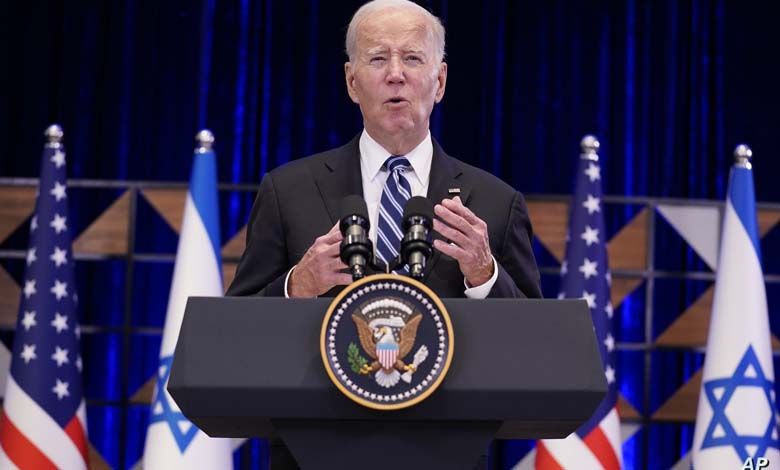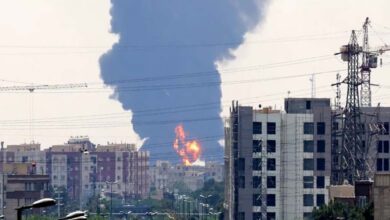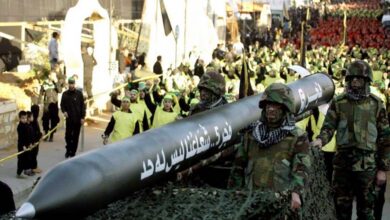Uncertainty Surrounds Hamas and Israel’s Positions on Biden’s Proposal
An Israeli official claims that the Palestinian movement rejected Biden's ceasefire proposal, while Hamas says its positive response opens a broad path to reaching an agreement

Hamas said today, Wednesday, that its “positive” response to the US plan for a ceasefire in the eight-month-long war in the Gaza Strip opens a “broad path” to reaching an agreement. However, expectations remain uncertain as neither Hamas nor Israel have publicly committed to the agreement, and an Israeli official claimed that the Palestinian movement rejected the proposal.
Despite talks of progress, especially in Hamas‘s position, it appears that some points are still being rejected by both Hamas and Israel, which casts uncertainty on the future of this agreement.
Hamas submitted its official response on Tuesday to the proposal presented by US President Joe Biden on May 31. Israel said the response amounted to a rejection, while a Hamas official said the movement had merely reiterated long-standing demands that were not addressed by the current plan. Egypt and Qatar confirmed they received Hamas‘s response but did not disclose its content.
Izzat al-Rishq, a member of Hamas‘s political bureau, said in a statement earlier on Wednesday that the movement’s response “was responsible, serious, and positive, opening the way for a broad agreement.”
Another official from the movement, speaking anonymously, said the response reaffirmed Hamas‘s position that the ceasefire should lead to a permanent cessation of hostilities in Gaza, the withdrawal of Israeli forces, the reconstruction of the Palestinian territory, and the release of Palestinian prisoners in Israel.
The official added, “We reaffirmed our position. I think the gaps are not significant, and the ball is now in Israel’s court.”
The United States said Israel accepted their proposal, but Israel has not publicly confirmed this. While Israel continues its attacks in central and southern Gaza, among the deadliest in the war, Prime Minister Benjamin Netanyahu reiterated that Israel would not commit to ending its campaign in Gaza before eliminating Hamas.
An Israeli official said Tuesday that Israel received Hamas‘s response through intermediaries and that the movement “changed all the key and most important criteria (of the proposal),” adding that Hamas “rejected President Biden‘s proposal to release the hostages.”
An informed source had earlier said that Hamas proposed a new timetable for a permanent ceasefire and the withdrawal of Israeli forces from Gaza, including Rafah.
The UN Security Council voted on Monday in favor of a US-drafted resolution supporting Biden‘s proposal. Sami Abu Zuhri, a Hamas official, said Tuesday that the movement accepted the Security Council resolution and was “ready to negotiate the details.”
US Secretary of State Antony Blinken, currently visiting Tel Aviv to meet Israeli officials, called Hamas‘s statement a “promising gesture” but noted that a clear word from Hamas‘s leadership in Gaza was still needed. “That’s what’s important, and that’s what we don’t have yet,” he said.
Biden‘s proposal offers a ceasefire and the gradual release of Israeli hostages in Gaza in exchange for the release of Palestinians from Israeli prisons, ultimately leading to a permanent end to the war.
This would be part of a three-phase plan starting with an initial six-week ceasefire, followed by an Israeli military withdrawal from populated areas in Gaza and the release of some hostages while negotiations for a “permanent cessation of hostilities” are mediated.
The White House did not immediately respond to a request for comment on the Israeli official’s statements on Tuesday. US officials had earlier said they were reviewing Hamas‘s response.
Negotiators from the US, Egypt, and Qatar have spent months trying to broker a ceasefire in the territory of 2.3 million people.
At the United Nations, Secretary-General António Guterres said Tuesday in a report to the Security Council that Israeli forces and members of Hamas and Islamic Jihad killed and maimed children in 2023.
The war in Gaza erupted after Palestinian militants led by Hamas invaded southern Israel from Gaza on October 7, killing more than 1,200 Israelis and foreigners, according to Israeli statistics, and taking more than 250 others hostage.
Gaza’s Health Ministry said that continued Israeli air and ground strikes on the densely populated territory have killed more than 37,000 Palestinians and destroyed much of the small besieged territory, where malnutrition has also spread widely.












